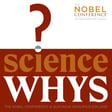
Mental Health and College Students
How can entire college communities best support the mental health of young people?
Lisa Heldke, Director of the Nobel Conference and Professor of Philosophy at Gustavus interviews Daniel Eisenberg, Professor, Department of Health Policy and Management, UCLA.
ScienceWhys is the podcast of the Nobel Conference. Listen to Dr. Eisenberg’s lecture and participation in panel discussion at the 2022 Nobel Conference, Mental Health (In)Equity and Young People, at Gustavus Adolphus College September 28 & 29, 2022.
Daniel Eisenberg’s research explores methods of investment in mental health services and uses research to create and disseminate equitable and inclusive mental health interventions and programs for youth. He serves as the director of the Healthy Minds Network for Research on Adolescent and Young Adult Mental Health.
Find Daniel Eisenberg’s homepage at UCLA here.
Eisenberg originated the Healthy Minds Survey, out of which grew the Healthy Minds Network. Anyone can see the anonymized data posted on the Network’s website. \
In December, the U.S. Surgeon General issued an advisory about young people’s mental health, entitled “Protecting Youth Mental Health.” Eisenberg was quoted in a number of news articles about the advisory, including one in the New York Times.
Eisenberg is working on a book with Ramesh Raghavan. You can find an earlier article, the basis of the book, here: “Investments in Children’s Mental Health.”
The Nobel Conference: Science and Ethics, in Dialogue
Since 1965, the Nobel Conference has been bringing leading researchers and thinkers to Gustavus Adolphus College in Saint Peter, Minnesota, to explore revolutionary, transformative and pressing scientific issues and the ethical questions that arise alongside them.
As the only event in the United States authorized by the Nobel Foundation in Stockholm, Sweden to use this name, it is our privilege to host a space in which we can talk about big scientific questions, and the big ethical issues to which they inevitably give rise. The world needs more people who think critically about the crucial issues of our time, and who ask questions in ways that open up the conversation.
Find us at https://gustavus.edu/nobelconference
Follow us on Facebook at https://www.facebook.com/NobelConference
Follow us on Twitter at https://twitter.com/NobelConference
